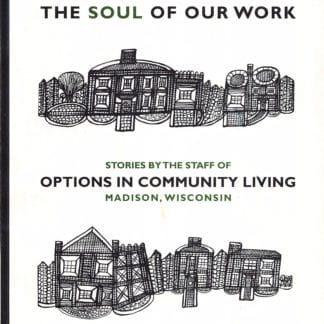Impro ving the Effectiveness of Residential Service Workers in Washington’s Developmental Services System
Prepared for
The Residential Services Committee, Developmental Disabilities Planning council
John O’Brien, Connie Lyle O’Brien & Charles Galloway
Jan. 1981
The State of Washington is implementing a complex set of policies in an effort to establish necessary residential services for people with developmental special needs. This report looks at the Division of Developmental Disabilities’ (DDD) residential services policy at the point of service delivery by examining its effects on the jobs of direct service workers.
Direct service workers are the people whose primary job is to structure and share the daily lives of resident s. Their titles vary from place to place, depending on how their role is seen by program administrators. They may be called “Attendant Coun selors,” or “Houseparents,” or “Facilitators,” or “Living Skills Instructors,” or “Resident Counselors.” But whatever the varia tion in title or job description, these people are the service representatives who spend the most time with residents.
Direct service workers typically have less formal education and lower status than human service workers with other job titles — and their pay scale reflects their status. But from the perspective of the residents they serve, there is an important sen se in which they the program the state purchases. No matter how carefully an individual program is designed by a welltrained professional, its actual effect usually depends on how direct service workers go about doing their jobs.



